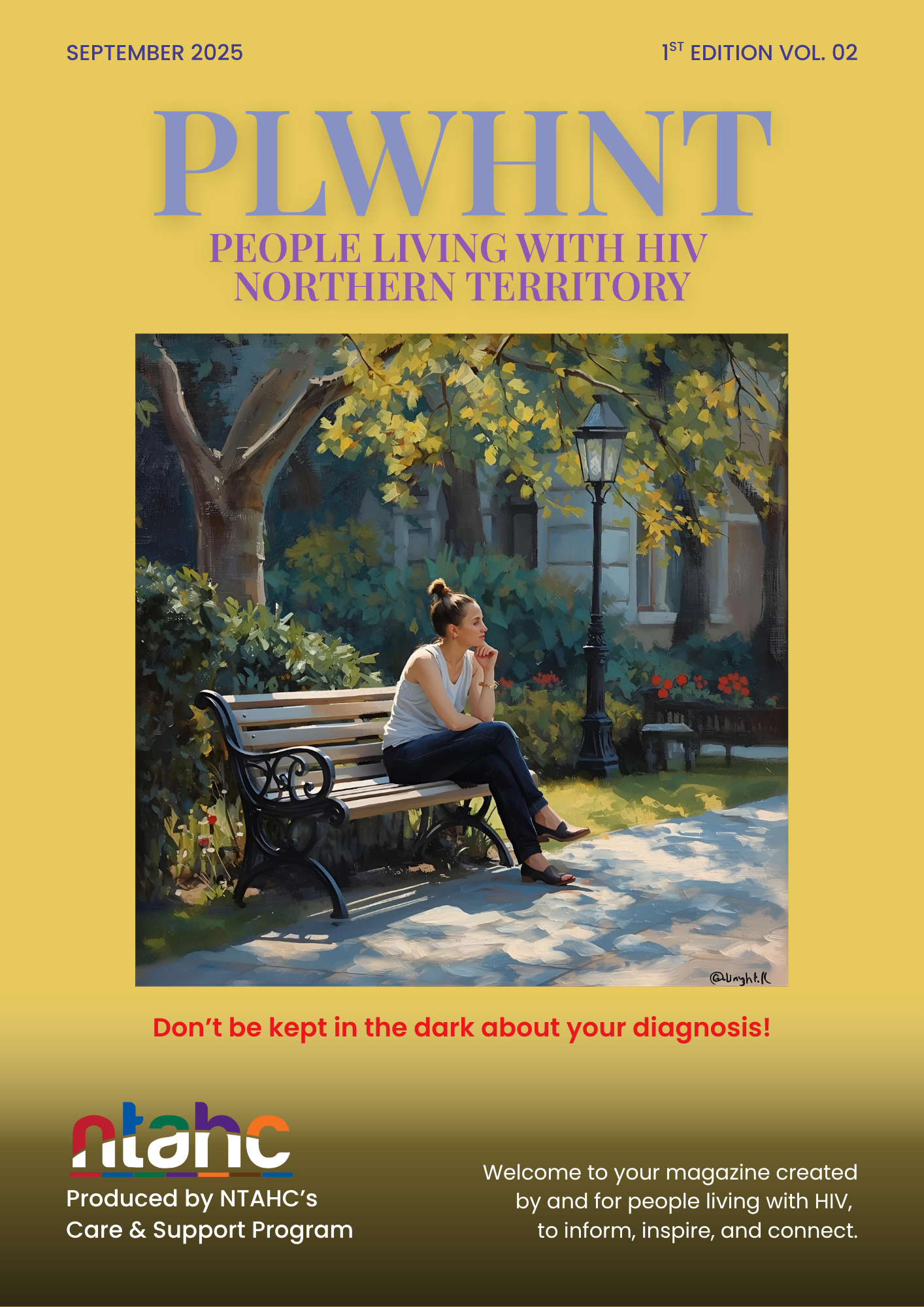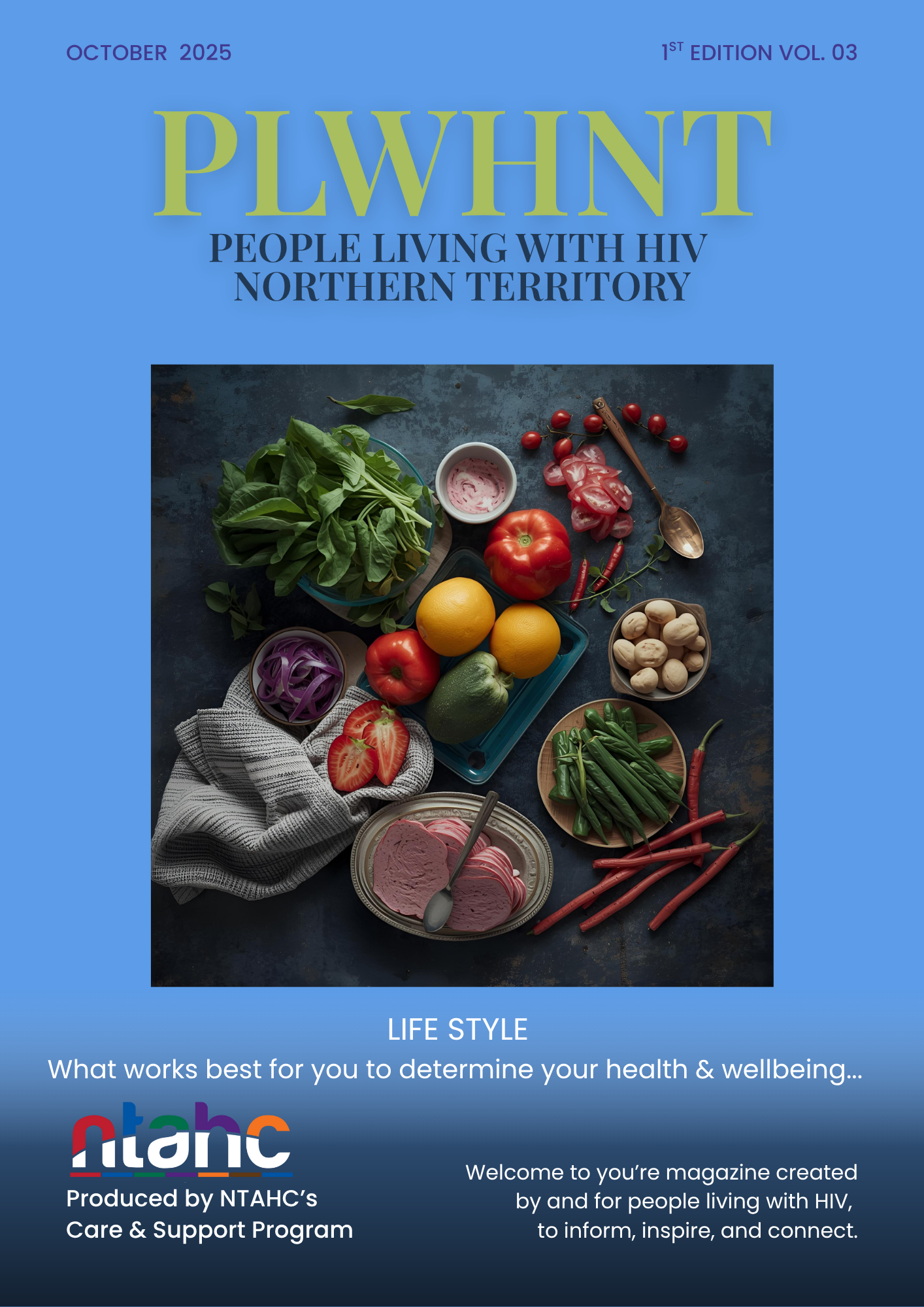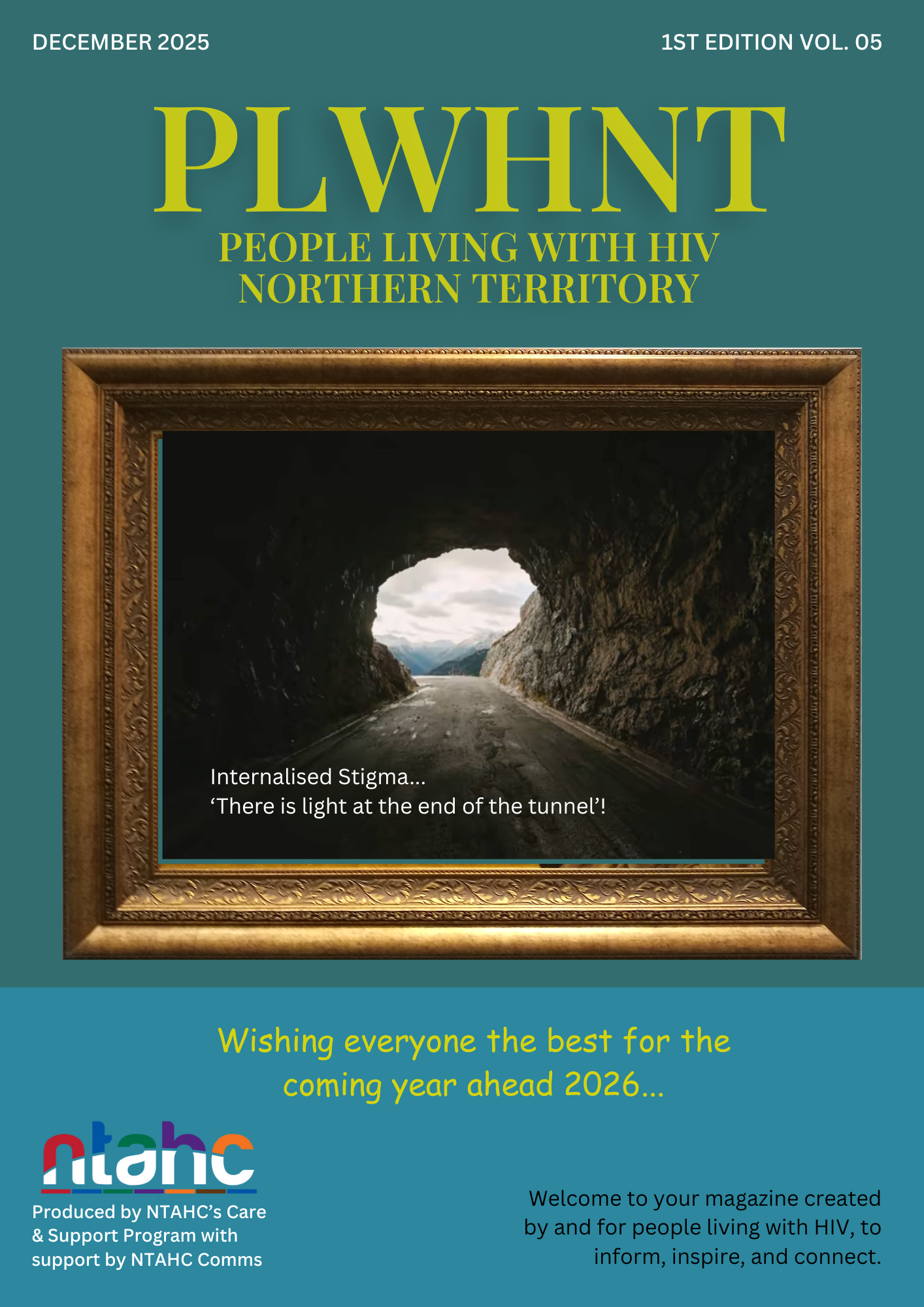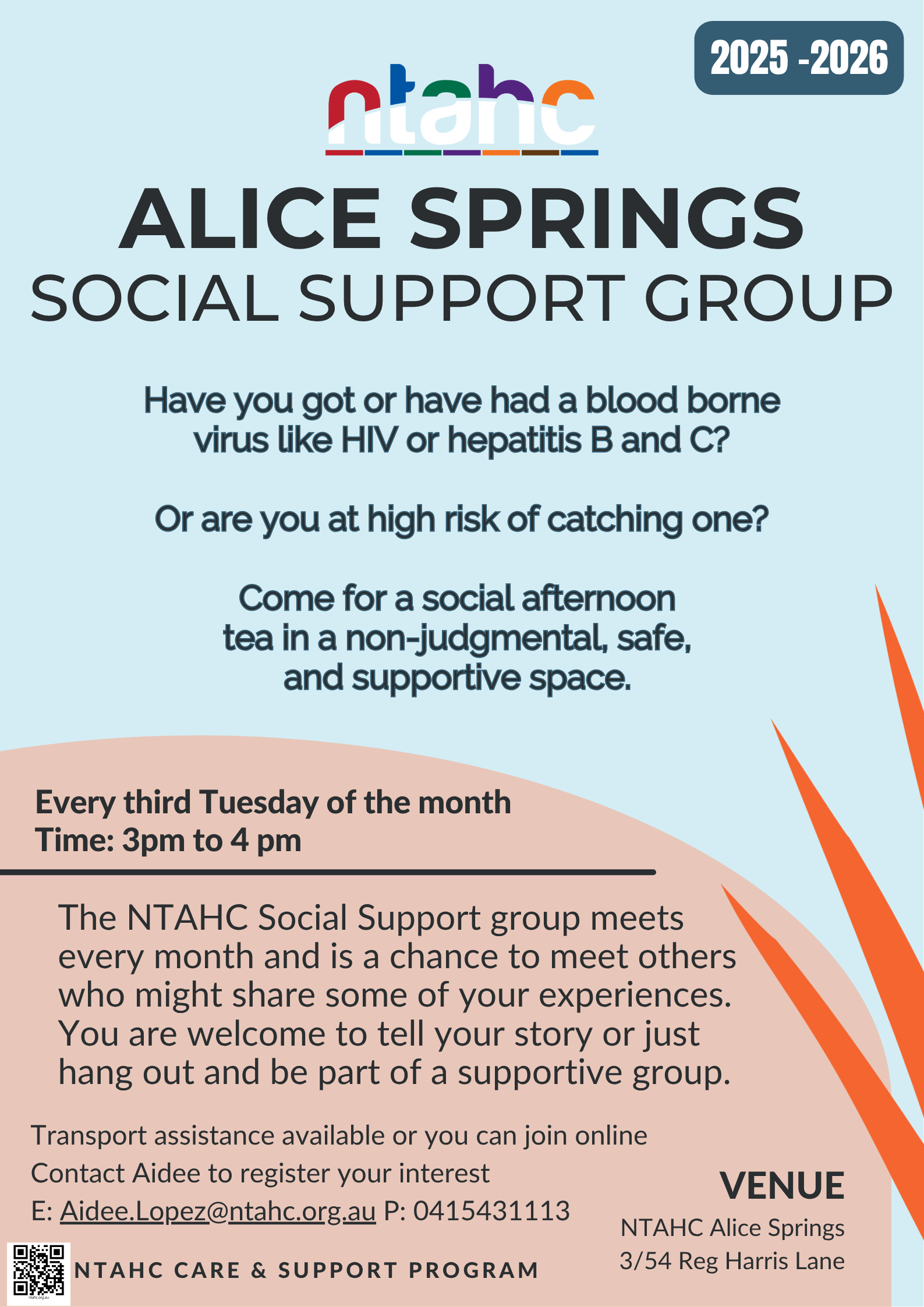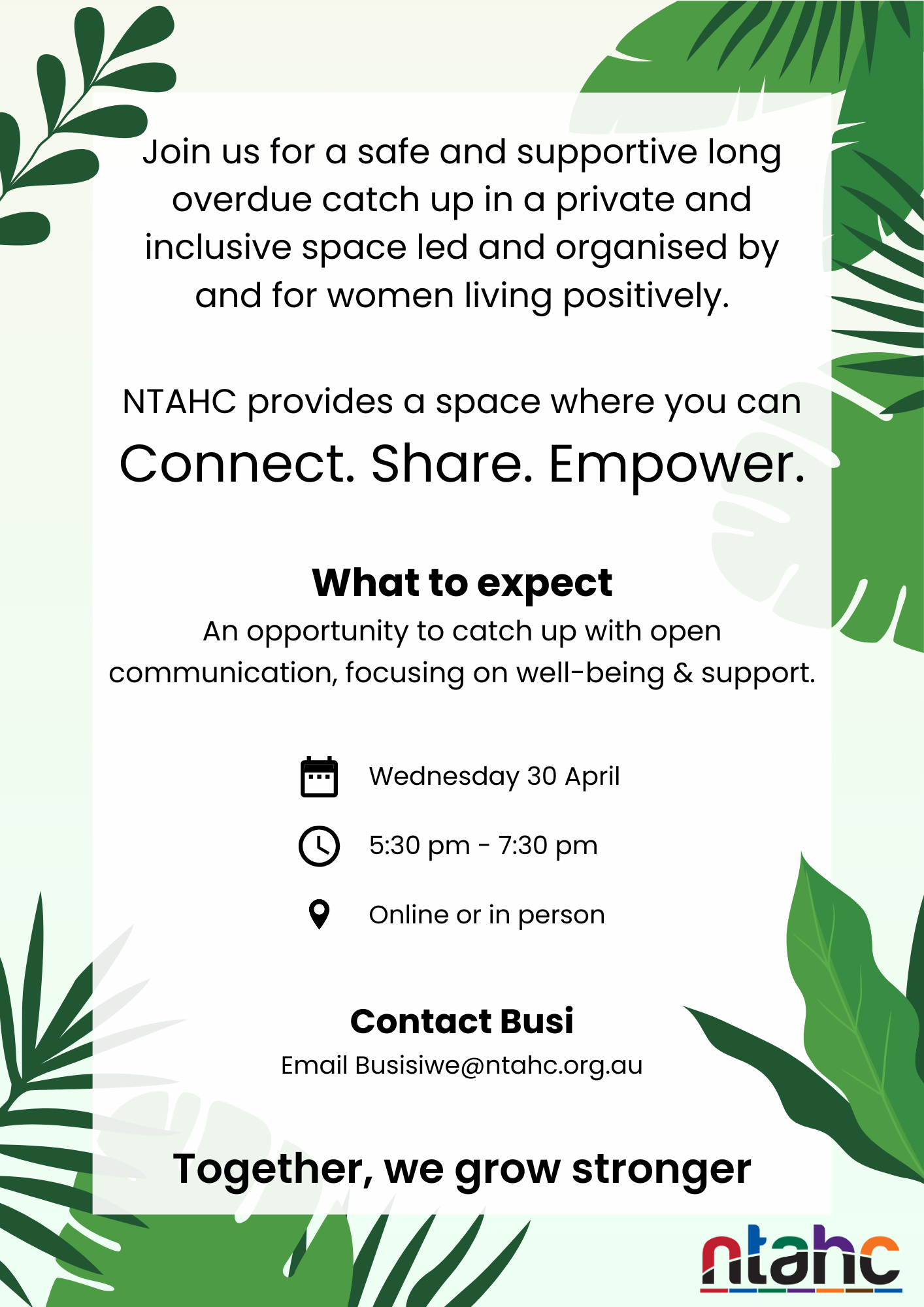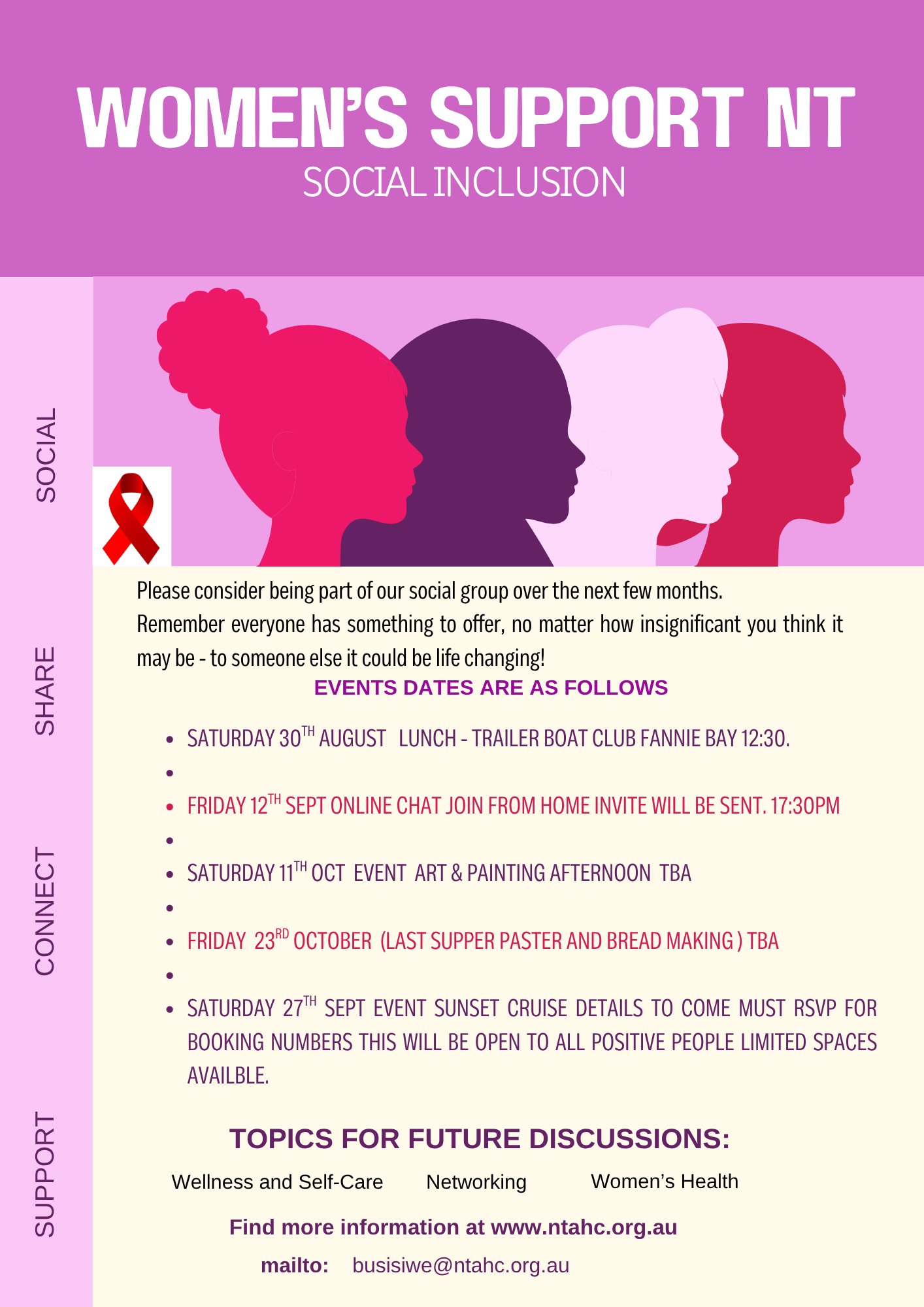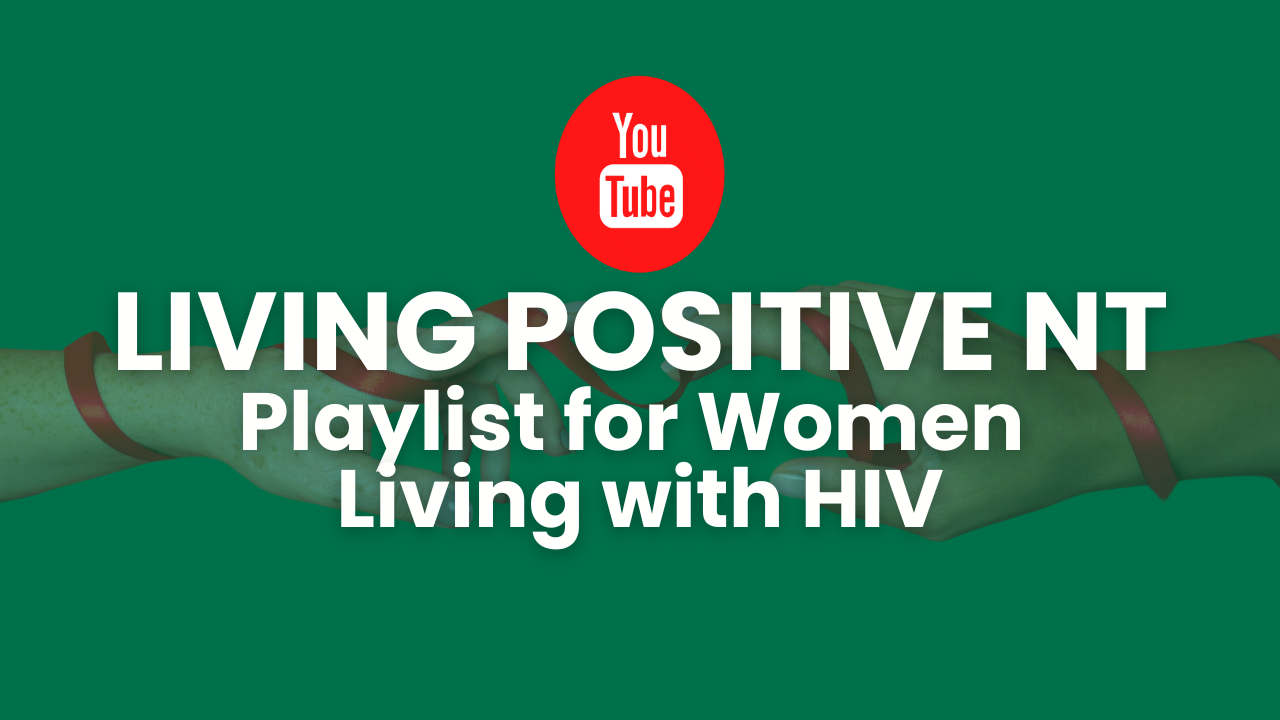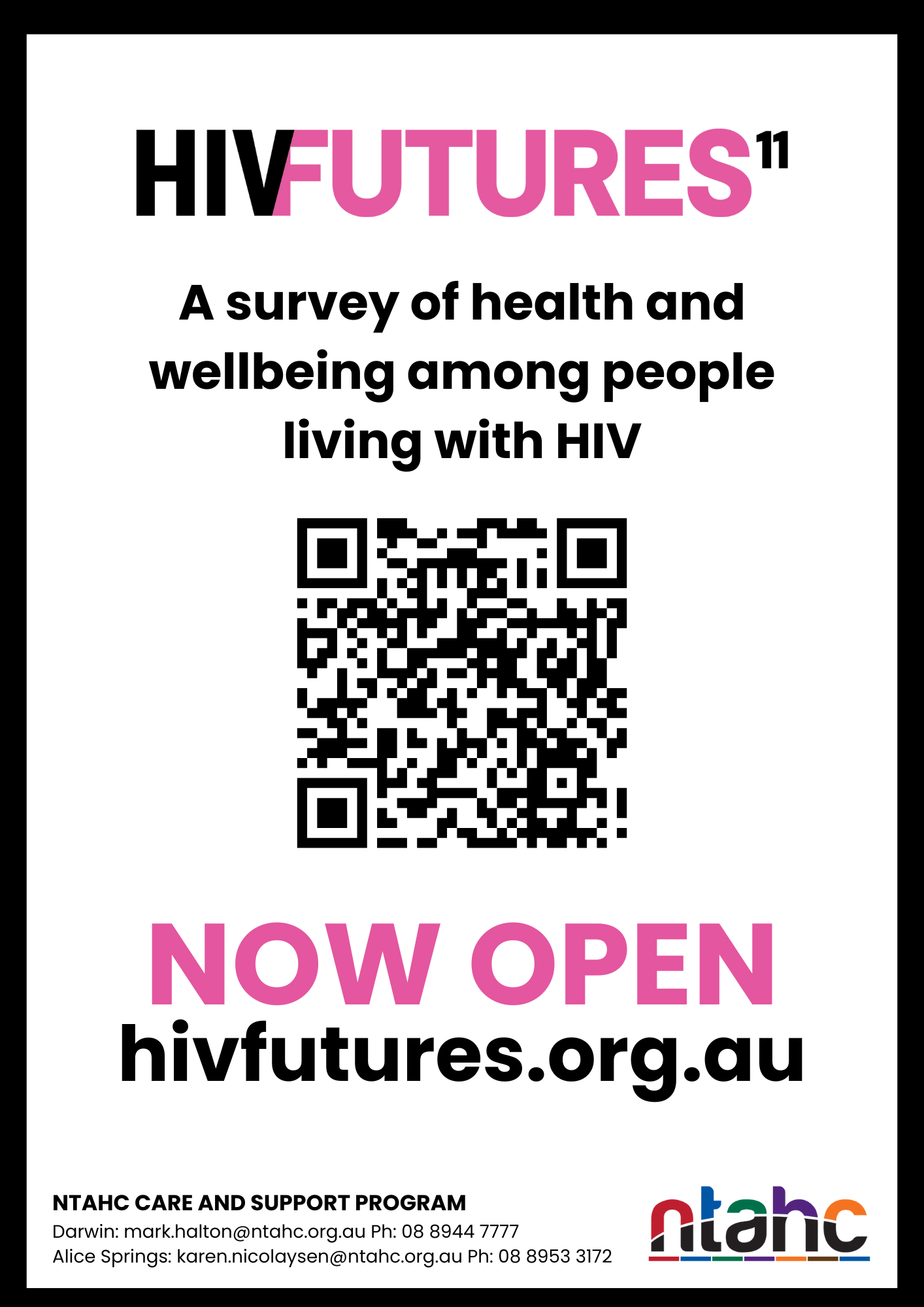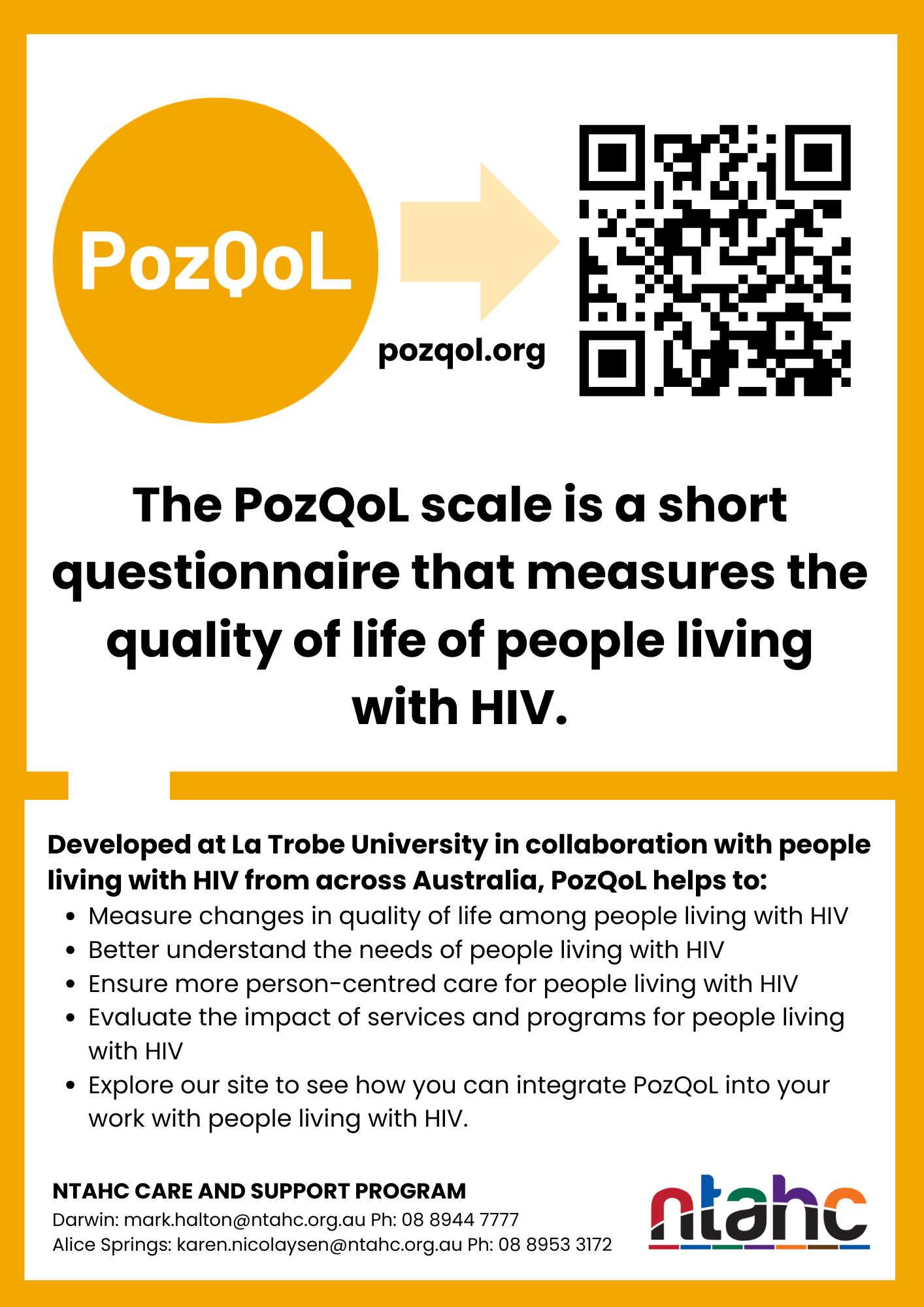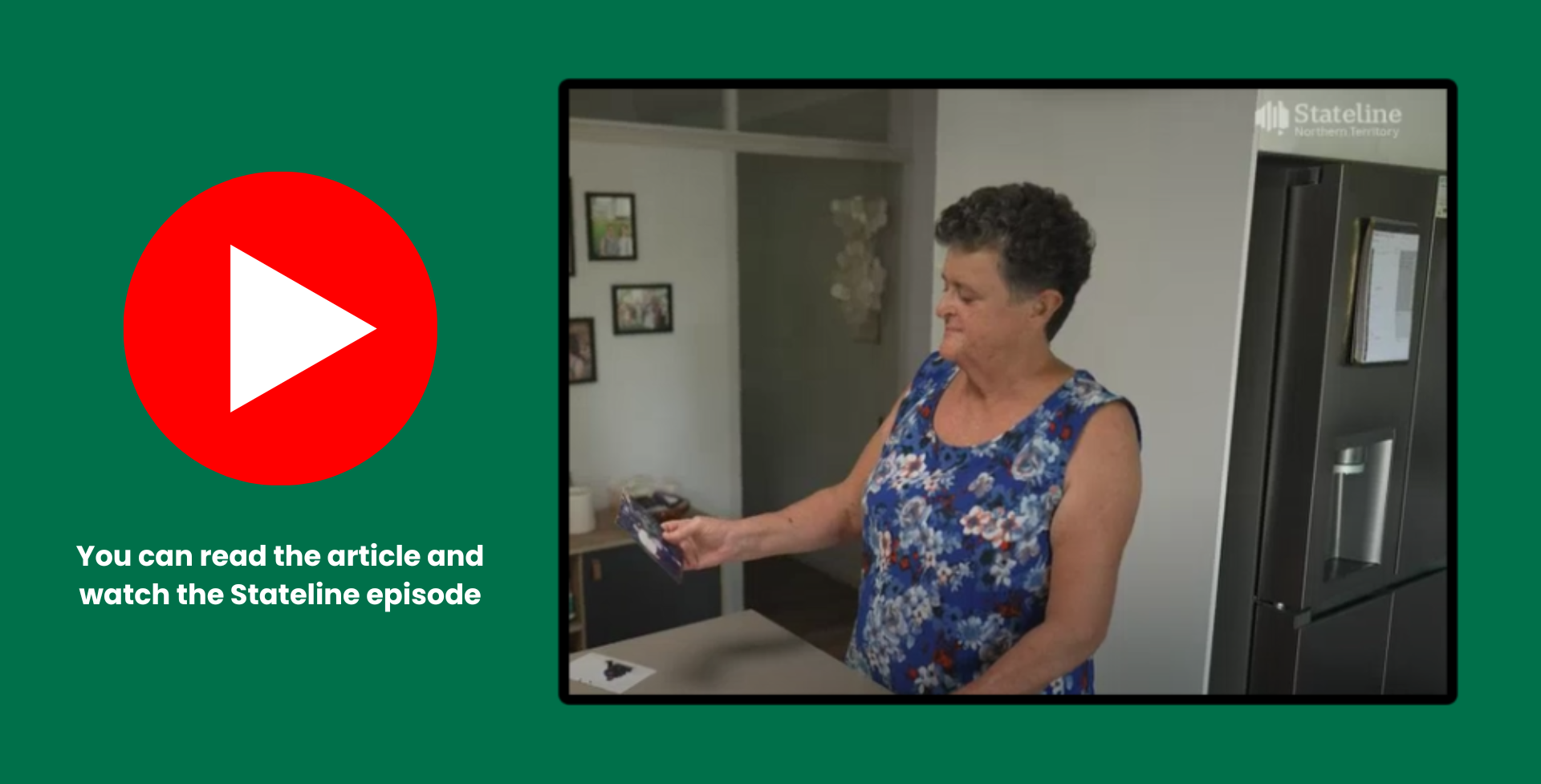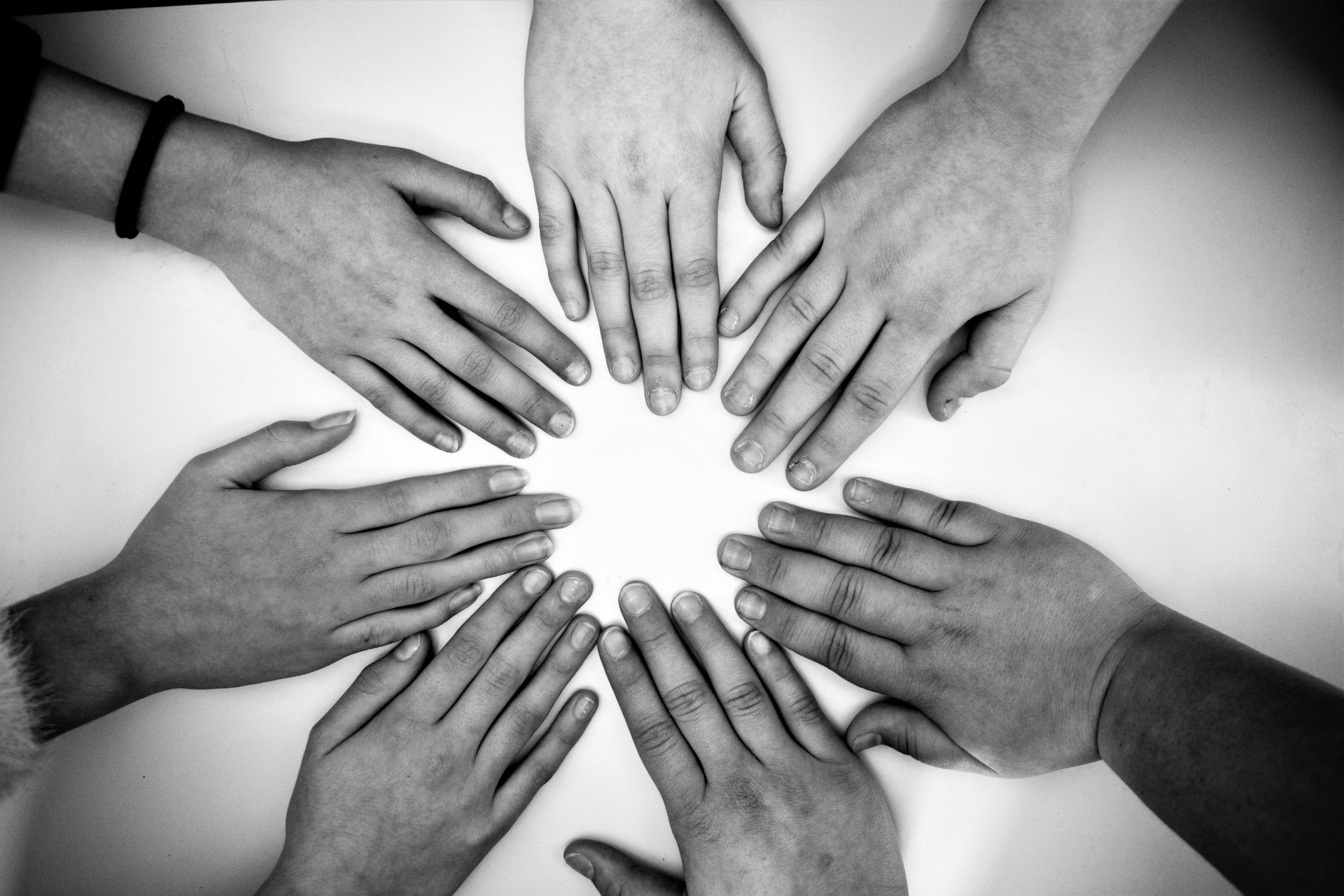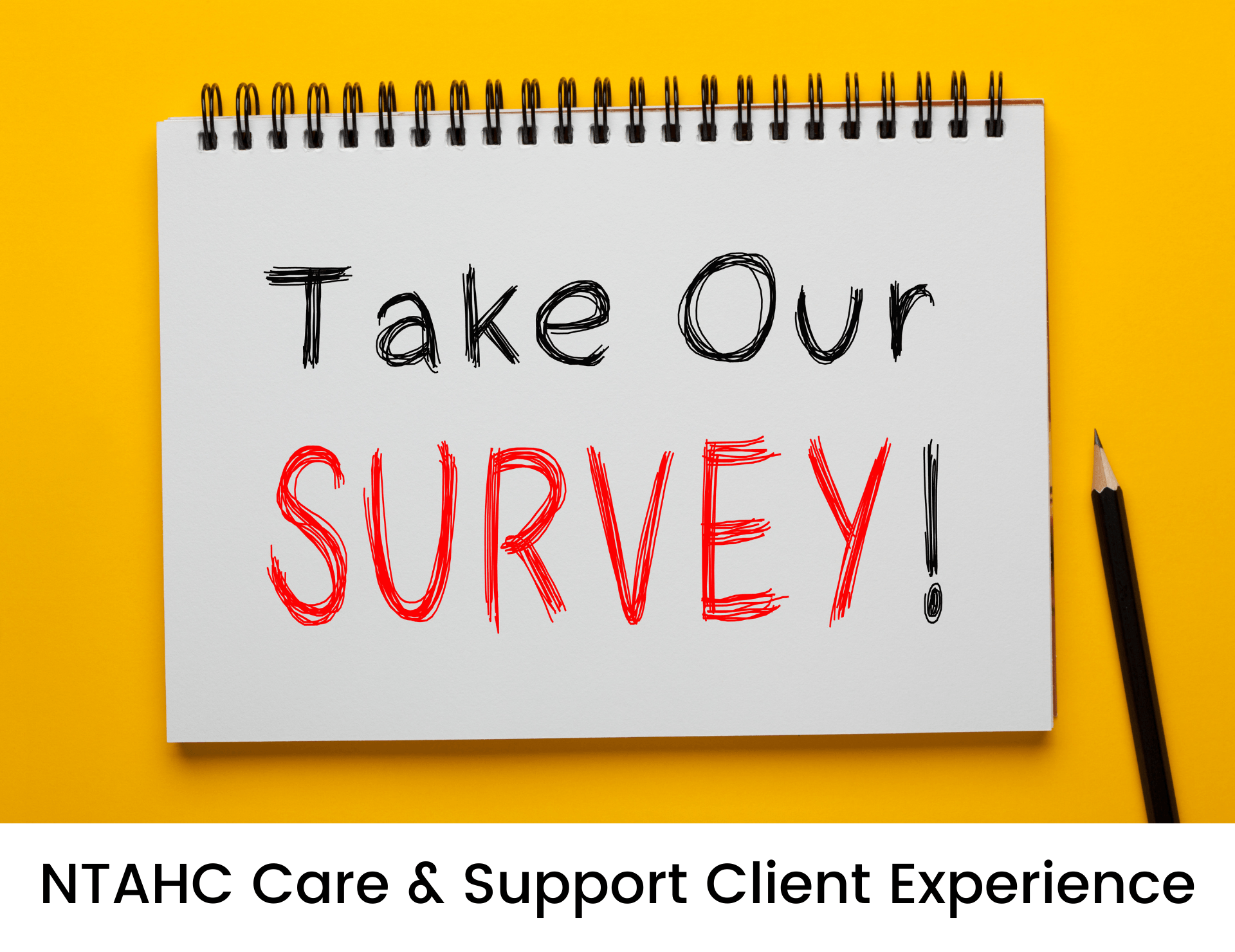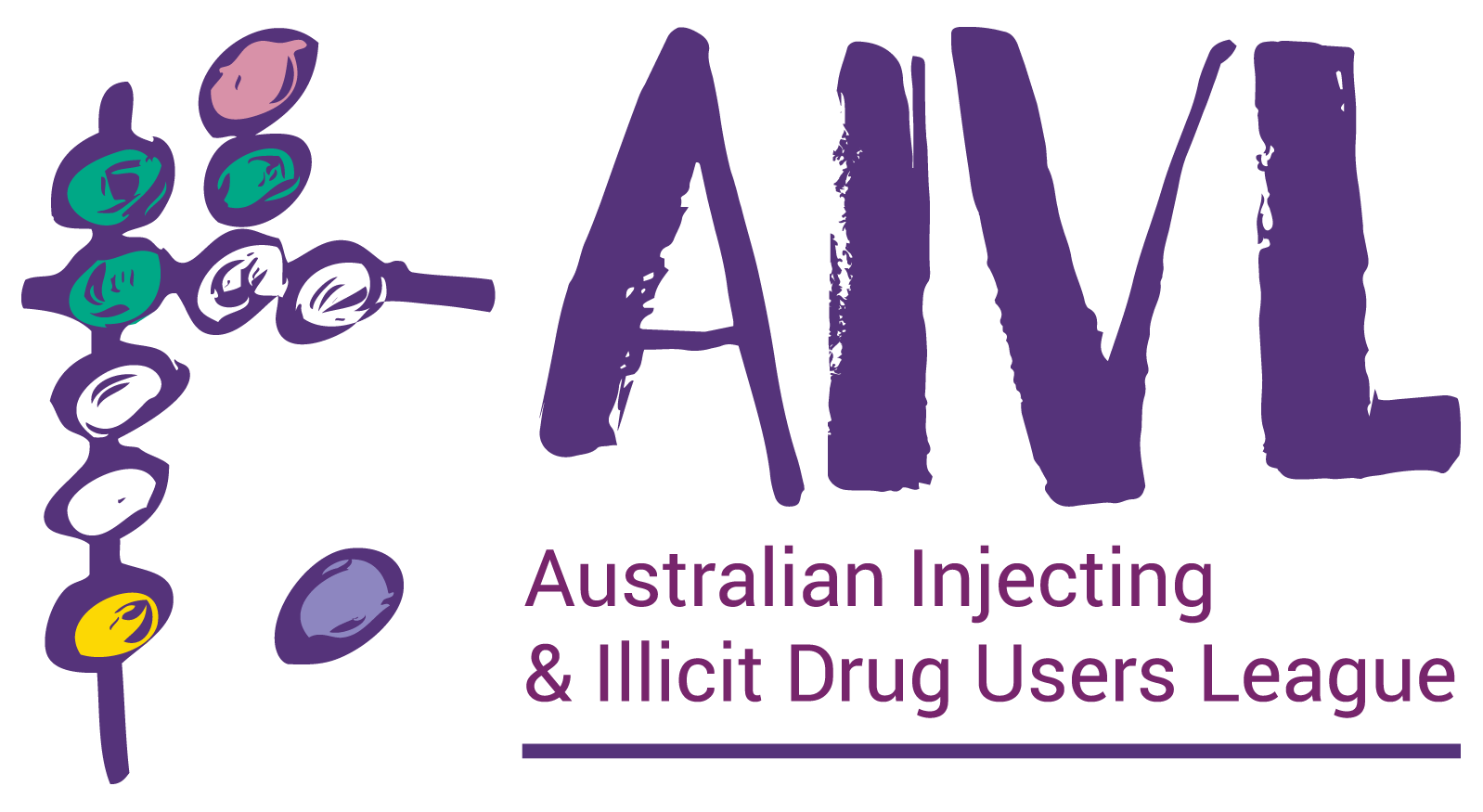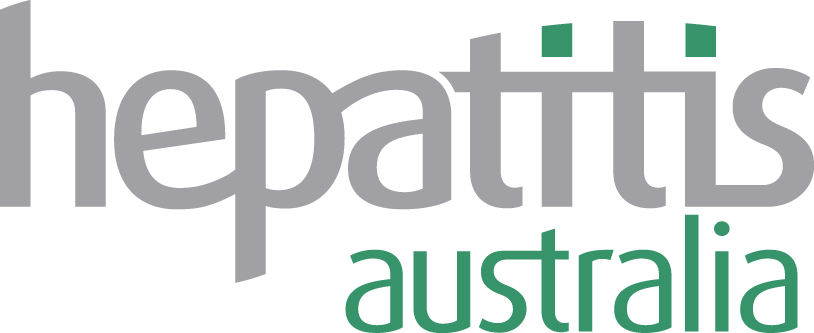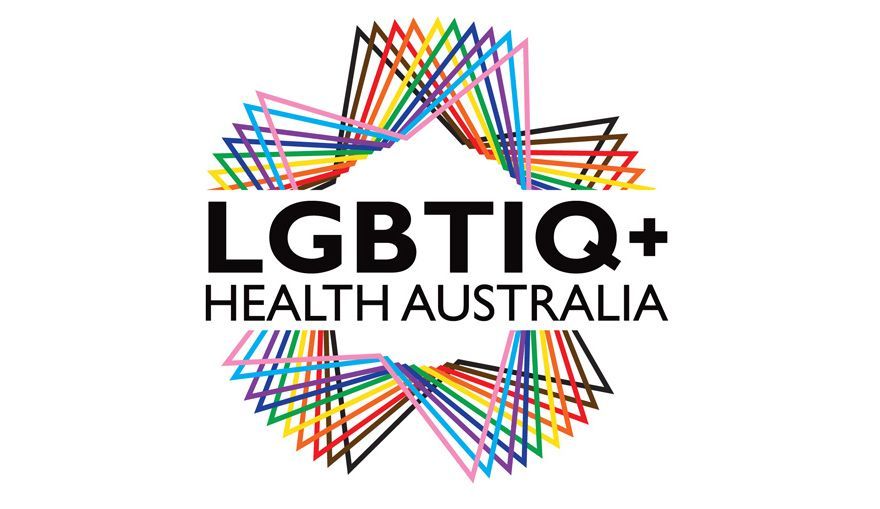Living Positive NT
Peer-led support and community care for Territorians living with HIV
Living Positive NT is a new resource under development for NTAHC’s peer-led Care & Support Program, continuing our commitment to supporting people living with HIV across the Northern Territory. Whether newly diagnosed or living long-term with HIV, we offer compassionate, confidential support built on community, experience, and empowerment.
THIS RESOURCE WEBPAGE IS BEING UPDATED VIA CARE AND SUPPORT AND PLWHIV
IF YOU HAVE ANY FEEDBACK OR CAN SUGGEST AN EDIT PLEASE LET US KNOW BY EMAIL mark.halton@ntahc.org.au
Recently diagnosed with HIV?
Talk to us!
Our Care and Support team offer free and confidential information & support by phone, email or in person.
PLWHNT — People Living with HIV Northern Territory
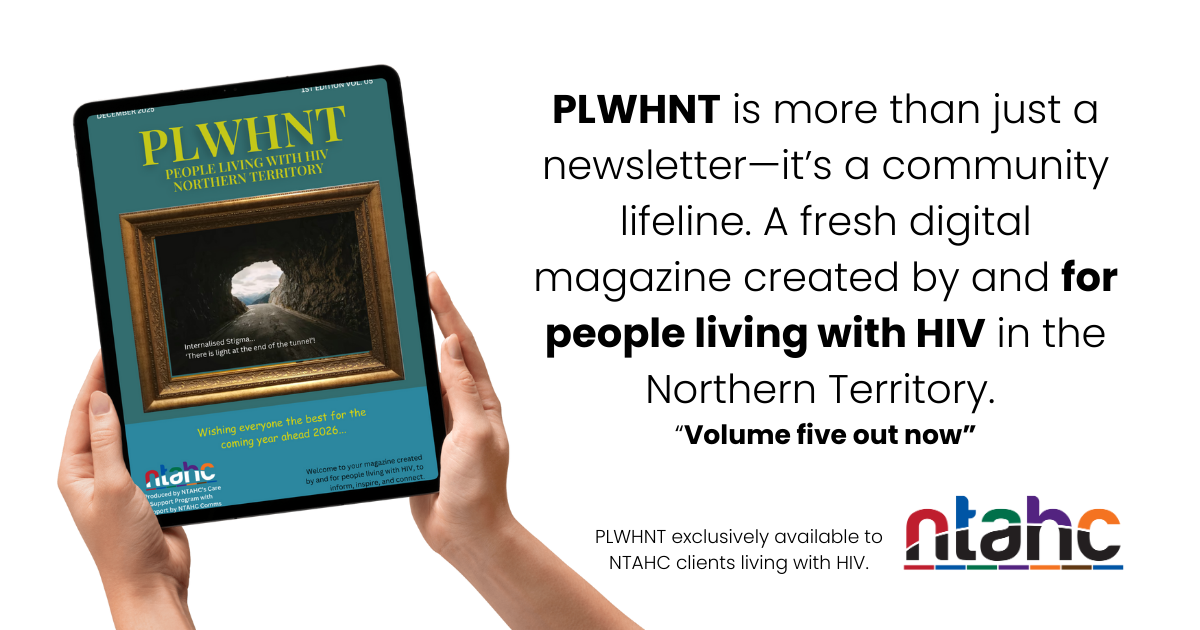
PLWHNT is more than just a newsletter—it’s a community lifeline. NTAHC’s Care and Support Program is proud to present PLWHNT, a fresh digital magazine created by and for people living with HIV in the Northern Territory. This publication is designed to inform, inspire, and connect, offering practical guidance, trusted resources, and a strong sense of community.
Peer-led support and community care for Territorians living with HIV
Why Peer Support Matters
Lived Experience. Real Support.
Support from someone who’s been there can make all the difference. Our team includes peers with lived experience of HIV, helping others navigate life with confidence, dignity, and connection.
Because health is more than medication.
Living Positive NT addresses social, emotional, and cultural wellbeing—reducing stigma, improving mental health, and building strong, informed communities.
"It helped to talk with someone who understood HIV and my culture"
“After diagnosis, I felt overwhelmed. But peer support gave me a way forward.”
“I’m more confident and in control of my health—and I’m not alone anymore.”
One-on-One Peer Support
Talk with someone who understands HIV, living in the NT.

Emotional and Psychological Impact
Shock, denial, or fear: Upon learning of the diagnosis, many people experience shock or disbelief. They may worry about their health, mortality, and future.
Concerns about Disclosure
Telling loved ones: Many people worry about how to disclose their status to family members, friends, or romantic partners, fearing rejection or misunderstanding.
Health and Medical Issues
Starting antiretroviral therapy (ART): Understanding the importance of starting and adhering to ART is essential, but the process may be daunting, especially if they are concerned about side effects.
Sexual and Reproductive Health
Impact on sexual relationships: HIV may bring concerns about intimacy, sexual pleasure, or fear of transmitting the virus to partners.
Stigma and Discrimination
Cultural and gender-based stigma: In many cultures, women with HIV may face more stigma than men. They may be blamed or judged, especially if they are seen as deviating from societal norms regarding sexuality or motherhood.
Access to Care and Support
Healthcare access: Some women may face barriers to accessing high-quality HIV care, including financial limitations, lack of health insurance, or living in areas with limited healthcare resources.
Impact on Family Life
Children and parenting: Parents with children may worry about how their diagnosis will affect their ability to care for their children or how to explain their condition to them.
Long-Term Outlook
Life expectancy: Although modern ART allows people with HIV to live long and healthy lives, many newly diagnosed individuals may initially fear a reduced lifespan or future health complications.
Financial and Practical Concerns
Cost of treatment: Worries about the affordability of medication, regular checkups, and potential hospital visits may arise.
Peer Support Groups
"it's a great space to connect with people, find support and share information"
The Care & Support program’s social inclusion groups are a place for people to meet, share and support each other on their health and wellbeing journey.
Our peer support groups aim to:
- Provide a non-judgmental, safe and supportive environment
- Organise friendly and informal activities based on your wants and needs
- Provide access to information, advocacy and support services
These groups can be a great way to meet others who share your life experience. These events are held throughout the year and also include yearly retreats for different groups.
Contact us via email, or phone to be added to our mailing list to hear when the next is on.
The importance of Social Inclusion
Social inclusion is crucial for people who are HIV positive due to its impact on their health, well-being, and overall quality of life. The stigma and discrimination associated with HIV/AIDS often affect women disproportionately, particularly in certain cultural or socio-economic contexts. Here are key reasons why social inclusion is important for people living with HIV.

Reduction of Stigma and Discrimination
Combatting Isolation: Social inclusion helps counter the isolation that many HIV-positive people face due to the stigma surrounding the disease. Women often experience double discrimination—both because of their gender and their HIV status.
Improved Mental Health
Support Systems: Being part of a community that includes HIV-positive people can provide emotional support, which helps in coping with the psychological stress that comes with the diagnosis.
Access to Healthcare and Services
Better Access to Resources: People who feel included and accepted in society are more likely to seek medical treatment, including antiretroviral therapy (ART), regular health checkups, and psychosocial support services.
Economic Empowerment
Employment Opportunities: Social inclusion can open doors to employment and financial independence, which are often limited for HIV-positive women due to discrimination in the workplace.
Economic Support: When communities embrace inclusivity, women living with HIV can access financial and social safety nets, improving their ability to provide for themselves and their families.
Improved Physical Health
Encouragement of Treatment Adherence: Women who are socially included are more likely to adhere to their treatment plans, which is essential for maintaining their health and preventing the progression of HIV to AIDS.
Holistic Care: Socially inclusive environments promote comprehensive care that addresses not only medical but also nutritional, emotional, and social needs, all of which are critical for women living with HIV.
Reduction of Gender-Based Violence
Protection and Support: Women who are marginalized are more vulnerable to violence, exploitation, and abuse. Social inclusion can provide networks of protection and advocacy that empower women to resist or escape such situations.
Legal and Social Advocacy: In inclusive societies, there are often stronger legal frameworks and social programs designed to protect HIV-positive women from gender-based violence.
Promoting Gender Equality
Challenging Gender Norms: Social inclusion helps challenge harmful gender norms and stereotypes that contribute to the marginalization of women with HIV. It promotes gender equality by ensuring that women have the same rights, opportunities, and access to services as men.
Fostering Community and Belonging
Empowerment and Agency: When women feel included, they are more likely to participate in decision-making processes, community leadership, and advocacy efforts that can improve the lives of others living with HIV.
Strengthened Relationships: Social inclusion helps women maintain strong social and familial relationships, which are often strained or broken due to HIV-related stigma.
Reducing Mother-to-Child Transmission (MTCT)
Support During Pregnancy: Inclusion ensures that HIV-positive women receive the support they need during pregnancy to reduce the risk of transmitting the virus to their babies through medical interventions and proper care.
Access to Preventive Care: Socially inclusive health systems prioritize preventive measures, ensuring that HIV-positive women have access to treatments that can prevent transmission to future generations.
In summary, social inclusion is critical for the empowerment, health, and well-being of HIV-positive women. It breaks down the barriers of stigma and discrimination, enabling them to lead healthier, more fulfilling lives while contributing positively to society.
Education & Resources
THIS SECTION IS CURRENTLY BEING UPDATED
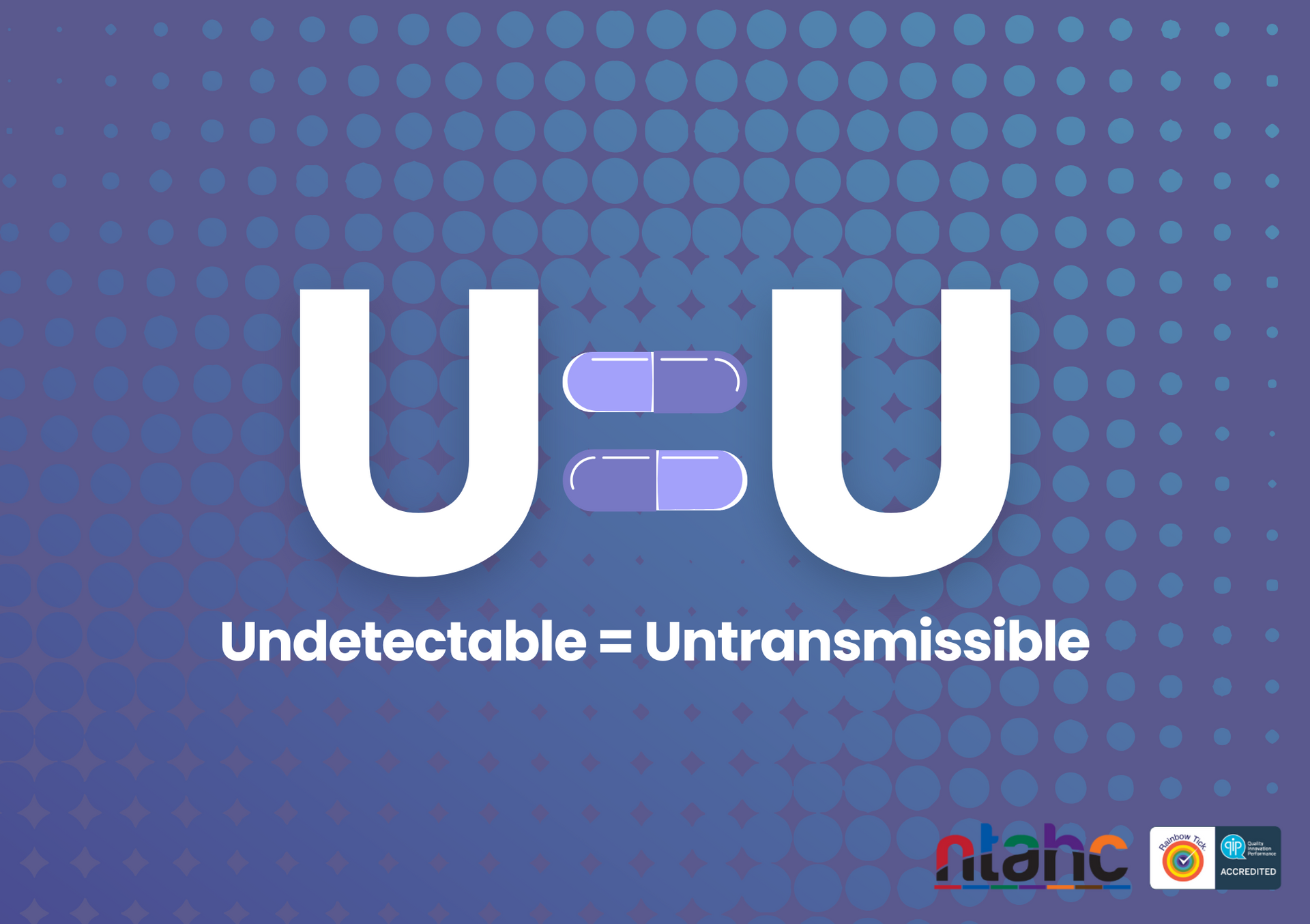
Understanding HIV Today
Living Well With HIV
Today, people living with HIV can thrive. With the right support and treatment, HIV is manageable—and U=U (Undetectable = Untransmittable) means there’s no risk of passing it on when viral load is suppressed.
You have rights. You have options. And you have a community here.
Learn about HIV
What is HIV?
HIV (Human Immunodeficiency Virus) attacks the immune system, specifically the CD4 cells (T cells), which play a crucial role in helping the body fight infections. If left untreated, HIV can lead to AIDS (Acquired Immunodeficiency Syndrome), the most severe phase of HIV infection.
How is HIV Transmitted?
HIV is primarily transmitted through:
- Unprotected sexual contact with an infected person
- Sharing needles or syringes
- From mother to child during childbirth or breastfeeding
- Exposure to infected blood (rare cases)
Undetectable Viral Load: For people living with HIV, adhering to treatment can lead to an undetectable viral load, eliminating the risk of transmission.
Living with HIV
With advancements in treatment, people living with HIV can lead long and healthy lives. Regular medical care, healthy lifestyle choices, and emotional support are essential components of living well with HIV.
Stigma
Understanding Stigma
HIV-related stigma can severely impact individuals living with the virus. It often stems from misconceptions about how the virus is transmitted and who is affected by it. Stigma can lead to discrimination, social isolation, and fear of disclosing one's status.
Combating Stigma
- Educate Yourself and Others: Knowledge is power. Share accurate information about HIV to dispel myths.
- Support and Advocacy: Engage in community groups or campaigns that aim to reduce stigma and promote awareness.
- Speak Up: If you witness discrimination against someone living with HIV, speak out against it.
U=U
Understanding U=U
U=U stands for "Undetectable = Untransmittable." This revolutionary concept means that people living with HIV who maintain an undetectable viral load through consistent antiretroviral therapy (ART) cannot transmit the virus to sexual partners. This empowers individuals living with HIV to have fulfilling, healthy relationships.
Why U=U Matters
Reduces Fear: Knowing that HIV is not transmissible when undetectable helps alleviate fears in both people living with HIV and their partners.
Promotes Treatment Adherence: Understanding U=U encourages consistent treatment adherence and regular health check-ups.
Disclosure
Why Disclosure Matters
Disclosing your HIV status can be a deeply personal decision that intersects with various aspects of life, including relationships, work, and mental health. It can foster trust and honesty but can also lead to fears of stigma or rejection.
Who to Disclose To
Intimate Partners: It is essential to inform sexual partners so they can make informed decisions regarding their health.
Family and Friends: Disclosing to trusted loved ones can provide emotional support and understanding.
Healthcare Providers: Always inform your healthcare providers about your HIV status to ensure you receive the best possible care.
How to Disclose
Choose the Right Time and Place: Find a comfortable and private setting to have the conversation.
Be Prepared for Questions: Be ready to answer questions or clarify misconceptions.
Practice Self-Care: Consider seeking support from a counselor or support group if you're feeling anxious about disclosing.
Your Right to Privacy
You have the right to control who knows your status. It’s your decision, and it’s important to do it at your own pace and comfort level. Remember, you are not alone—there are communities and resources available to support you.
HIV support Australia
Women living with HIV (WLHIV) in Australia have access to a range of services, support networks, and health care tailored to their needs. These services aim to address not only the physical health challenges related to HIV but also emotional, psychological, and social well-being. Here's an overview of key services and support available.
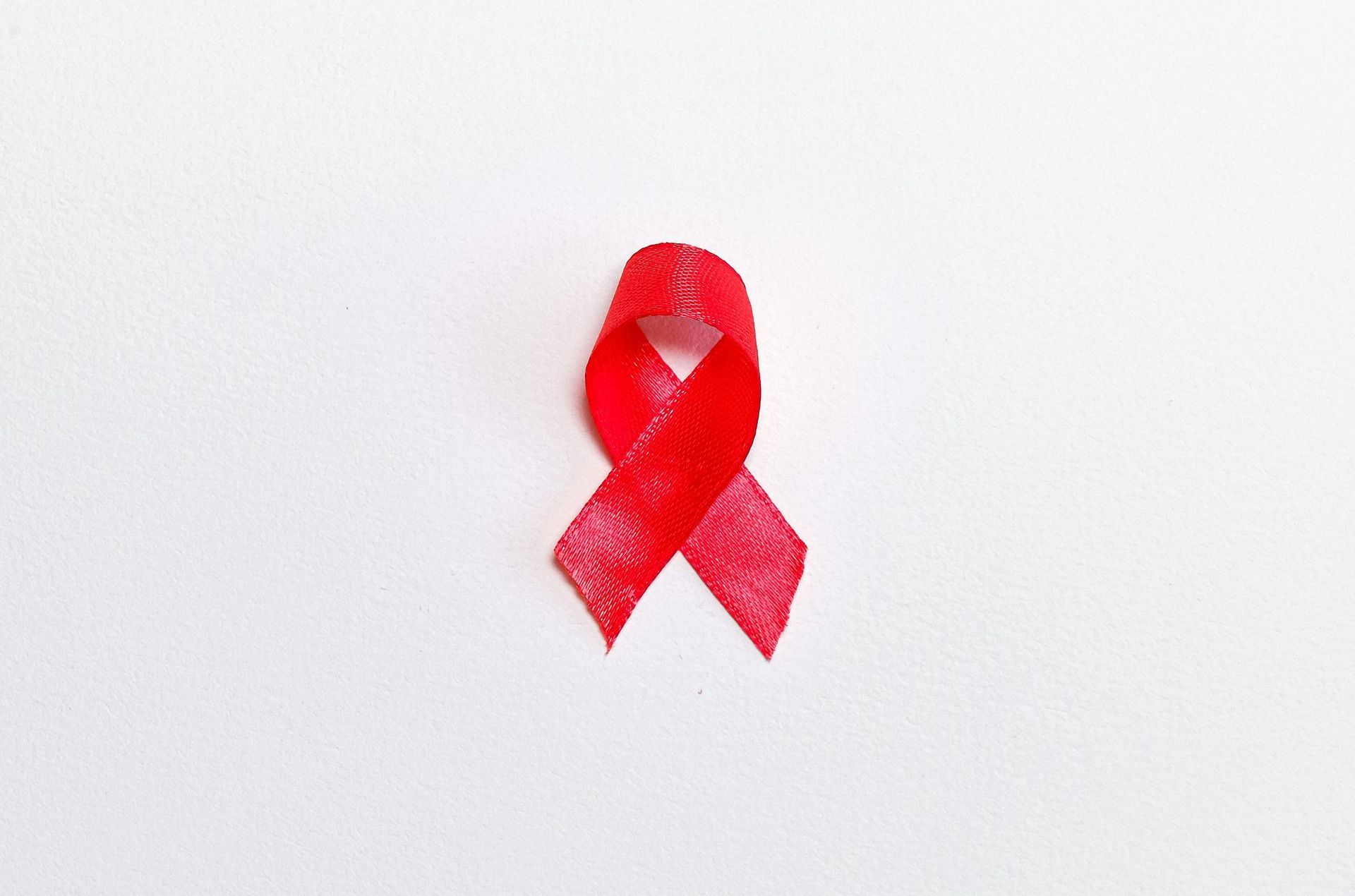
Health Care and Treatment
HIV Specialist Clinics: Many major cities in Australia have HIV specialist clinics that offer comprehensive care, including regular monitoring, antiretroviral therapy (ART), and management of HIV-related conditions.
Sexual Health Clinics: These clinics provide free or low-cost services, including HIV testing, counselling, and referrals.
General Practitioners (GPs): Many GPs in Australia are experienced in managing HIV and can prescribe ART.
Access to ART: ART is available at low cost through Australia’s Pharmaceutical Benefits Scheme (PBS), ensuring that women living with HIV have access to life-saving treatment.
Women-Specific Support Services
Positive Women Victoria: This organization specifically supports women living with HIV, offering peer support, health education, and advocacy. They also work to reduce stigma around HIV.
Women’s HIV Program: Some states and territories may have specialized women’s health programs within their HIV services to ensure care is tailored to gender-specific health needs.
Mother-to-Child Transmission Prevention: Pregnant women living with HIV receive specialized care to prevent mother-to-child transmission, including access to ART during pregnancy and birth.
Mental Health and Well-being Support
Counselling and Psychological Services: Many HIV services offer access to counsellors and psychologists experienced in dealing with HIV-related issues, such as mental health challenges, stigma, and relationships.
Support Groups: Peer support groups for women living with HIV provide an important space to share experiences, reduce isolation, and build resilience. Positive Women Victoria and other organizations host such groups.
Online Communities: Platforms and virtual support spaces offer confidential, supportive environments for women to connect, particularly in rural or isolated areas.
Sexual and Reproductive Health
Contraception and Family Planning: Women living with HIV can access comprehensive sexual and reproductive health services, including contraception advice and safe conception practices.
Pregnancy Care: HIV-positive women who wish to have children are provided with support and education on safe pregnancy, birth options, and reducing the risk of HIV transmission to the child.
Legal and Advocacy Services
HIV/AIDS Legal Centre (HALC): Provides free legal advice and services to people living with HIV, covering issues such as discrimination, family law, and health rights.
Advocacy for Rights: Women’s advocacy groups work on policy changes to ensure the rights of women living with HIV are upheld, addressing issues like workplace discrimination, access to care, and gender-based violence.
HIV Prevention Services for Women
Pre-exposure Prophylaxis (PrEP): For women at risk of HIV, PrEP is available and supported through sexual health clinics and community health services.
Education and Awareness Campaigns: Targeted education for women living with HIV, including information on safe sex practices, mental health, and reducing stigma.
Culturally Specific Services
Support for Indigenous Women: Organizations such as the Aboriginal Health and Medical Research Council of New South Wales offer culturally sensitive care to Indigenous women living with HIV.
Migrant and Refugee Women: Services cater to women from migrant and refugee backgrounds, providing care and support in a culturally appropriate manner, with a focus on addressing language barriers and unique challenges.
Stigma and Discrimination Support
Anti-Stigma Programs: Various organizations in Australia actively work to reduce the stigma associated with HIV, offering education, legal recourse, and support for women who face discrimination due to their status.
These services are often coordinated through local sexual health clinics, specialized HIV organizations, or public hospitals, ensuring that women living with HIV receive holistic and comprehensive care.
Personal Stories
and Experiences
Click on playlist or click the grey boxes for direct links.
Living Authentically
Women sharing their journeys with HIV, focusing on resilience and personal growth.
Overcoming Stigma
Stories of overcoming societal stigma and embracing one’s identity.
Mental Health and Wellness
Coping Strategies: Tips for managing anxiety, depression, and stress related to an HIV diagnosis.
Mindfulness and Self-Care: Techniques for mindfulness, self-care routines, and building a positive mindset.
Health and Nutrition
Healthy Living: Nutrition tips and healthy recipes for managing health with HIV.
Exercise and Fitness: Workouts tailored for HIV-positive women, promoting physical health and well-being.
Intersectionality
Addressing Diverse Identities: Videos that discuss the intersection of HIV with race, sexuality, and socio-economic status.
Cultural Perspectives: Exploring how different cultures view HIV and the unique challenges faced by women in those communities.
By exploring these areas through engaging and supportive content, HIV-positive women can find inspiration and resources to live empowered, fulfilling lives.
Relationships and Dating
Dating with HIV: Advice on navigating dating, intimacy, and communicating about HIV.
Building Support Networks: Importance of supportive friendships and how to build a strong support system.
Advocacy and Activism
Empowerment through Advocacy: How to get involved in HIV advocacy and support groups.
Educating Others: Sharing knowledge about HIV to help reduce stigma in communities.
Practical Resources
Understanding Treatment Options: Information on medications, adherence, and healthcare rights.
Accessing Support Services: Guides on where to find emotional and practical support resources.
Creative Expression
Art and Healing: How art, writing, or music can be therapeutic and empowering for women living with HIV.
Storytelling Workshops: Workshops focused on using storytelling as a means of healing and connection.
Living with HIV Resource Sites
Navigating life with HIV can be challenging, but numerous resources and organisations are dedicated to providing support, information, and community for those affected. Below is a list of notable sites that offer valuable resources, advocacy, and connections for individuals living with HIV
NAPWHA (National Association of People with HIV Australia)
The peak non-government organization representing people living with HIV in Australia.
Queensland Positive People (QPP)
Offers support services, information, and advocacy for people living with HIV in Queensland.
Living Positive Victoria
Supports people living with HIV in Victoria through advocacy, education, and peer support.
Positive Life NSW
Provides support, information, and advocacy for people living with HIV in New South Wales.
Referrals & Help
Connections to housing, Centrelink, legal aid, employment, or AOD support.
For service providers wanting to make a referral to the Care & Support program please fill out the downloadable document and email to info@ntahc.org.au or directly to one of the Care & Support team.

Surveys
MEDIA - STATELINE
Representative of Living Positive NT Del Batton featured on ABC’s Stateline in a powerful segment highlighting the challenges facing women living with HIV.
The piece addresses the urgent need to improve recognition, early diagnosis, and specialised support for women — a topic central to NTAHC’s ongoing advocacy.
By Tilda Colling
12 May 2025
